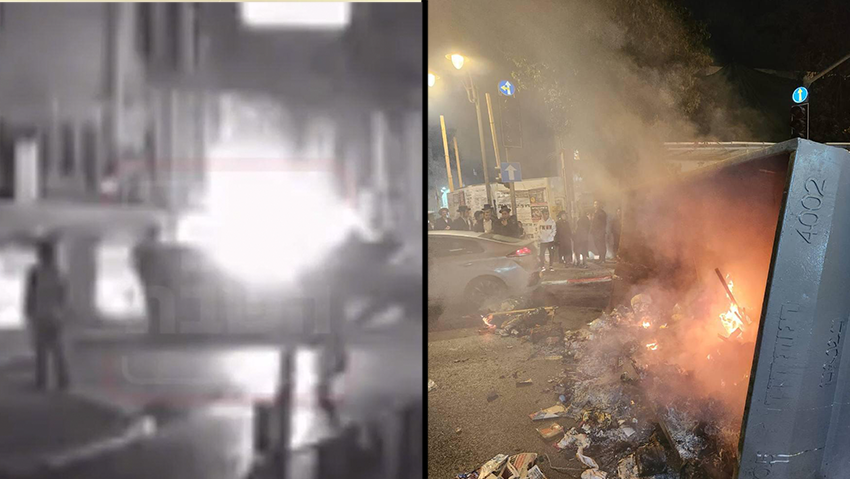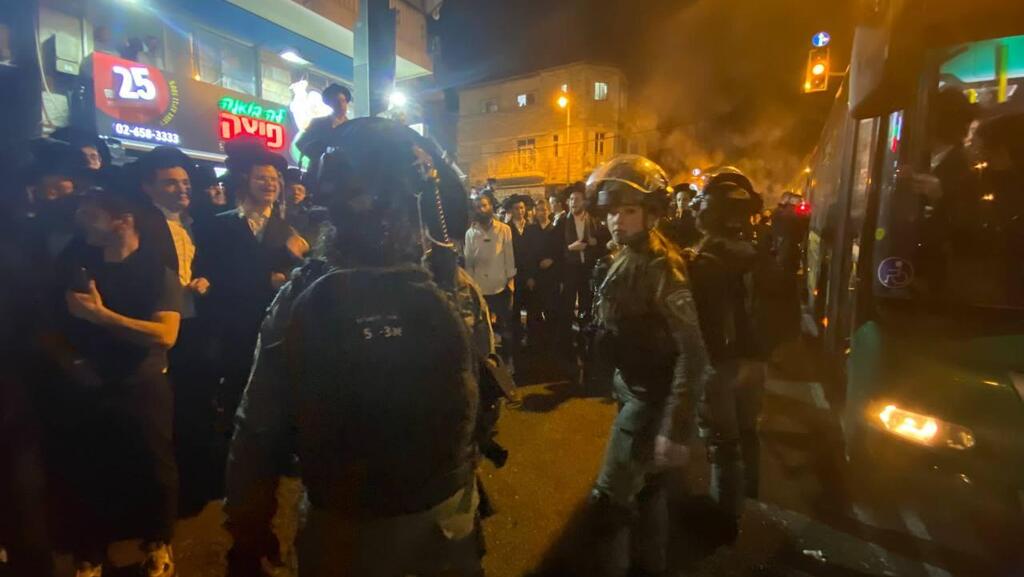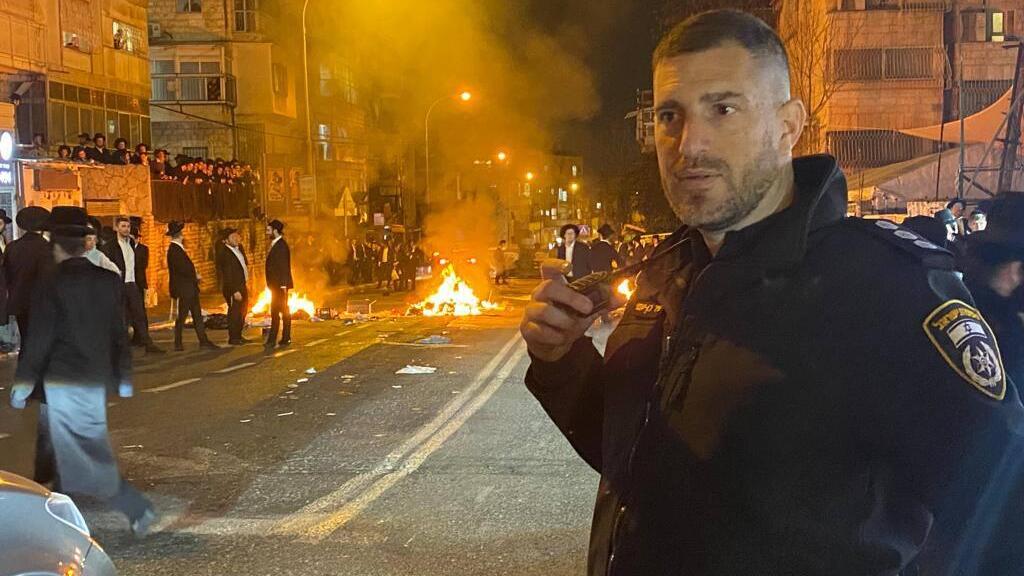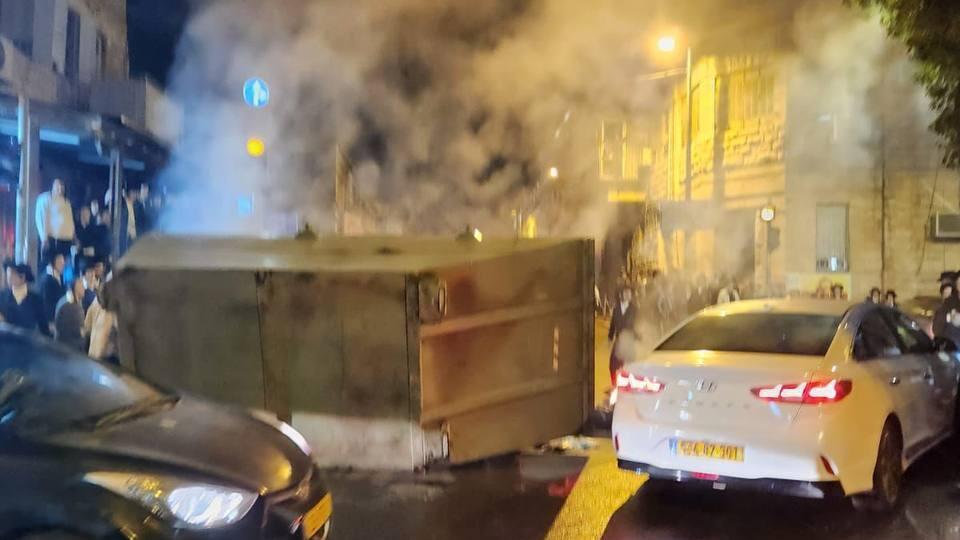Getting your Trinity Audio player ready...
Jerusalem's ultra-Orthodox enclaves are home to tens of thousands of Haredi Jews who live in crowded conditions, poverty, and a distinct lack of official Israeli presence.
These nearly separate enclaves within the capital city, are concentrated into three main neighborhoods - Mea She'arim, Geula, and the Bukharim quarters of West Jerusalem.
Garbage can in flames rolls down the street
(Haim Goldberg, Shabbat Square)
Most of the residents belong to extremists factions of ultra-Orthodox Judaism. Some of them refrain from using state-funded services out of principle, while others refuse to receive rations and stipends and strictly abide by rigid religious guidelines of modesty and gender segregation.
Just last Saturday evening, an store belonging to an optics chain in a major intgersection outside two of the neighborhoods, was vandalized because it exhibited a picture of a woman.
Isarel is not effectively the sovereign body in these neighborhoods, and this has been the reality for decades. Police vehicles, municipality cars, firefighters, and essentially all outsiders, are greeted with resistance, and often violence, upon entering those areas.
Violent protests often break out over matters such as modesty, Israeli conscription law or infrastructure work that is seen by the local residents as a violation of Jewish graves.
The light rail train has been under construction, and subject to ultra-Orthodox demonstrations for over two years,costing the e company overlooking the project, hundreds of millions of shekels as well as some major scheduling delays.
Vehicles set on fire and destroyed fences are common occurrences. The police has tried to protect the construction sites by providing the company with security personnel, but have not been successful in putting a halt to the recurring vandalism.
Last week, a mother of 11 was seriously hurt when hit by a burning trash container that was pushed down the road by the rioters, when she was on her way to the grocery store.
That violence came after two men were arrested for burning a store selling mobile phone devices, which are prohibited for use by the religious authorities governing these groups.
4 View gallery


Garbage can in flames rolls down the street
(Photo: Haim Goldberg, Shabbat Square, Israel Police)
Local residents explained that this kind of protest is not uncommon. "Ask an average Haredi person and he will tell you that in the past years it has become terrifying to walk here," says a Geula resident.
"One time its a mobile phone store, another time its an arrest of deserter from the IDF, and another time its just bored youths who have time on a Friday night . The bottom line - there is no law and there is no one maintaining order."
Another resident admitted that the problem is that the residents of those neighborhoods have autonomy to do whatever they want. "The police won't tell you this, but they're scared to enter," he says.
A Haredi woman who lives in Mea She'arim, claims that the police does more harm than good. "We prefer they don't come in here, and that way no accidents could happen.
"We want them to leave us alone and let us live by the way of the Torah without the rules of the Zionist state. We know how to solve our problems on our own, and we have no interest in the government educating us on how to act," she says.







